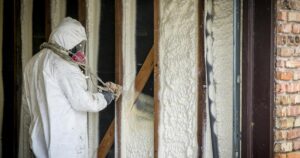Tips for Industrial and Residential Fire Safety Pakistan
In Pakistan, the risk of fire incidents is a growing concern, especially in densely populated urban areas and industrial zones. Fire safety Pakistan is a critical issue that affects both residential and industrial sectors. Ensuring fire safety is not just about having the right equipment but also involves proper planning, education, and preventive measures. In this article, we will explore the importance of fire protection in Pakistan, the common causes of fire incidents, and the best practices to prevent fires in homes and industries.

The Importance of Fire Safety in Pakistan
Fire-related accidents can have devastating effects, leading to loss of life, property damage, and economic setbacks. Unfortunately, fire safety Pakistan is often overlooked in many sectors across Pakistan. With rapid industrialization, urbanization, and increasing use of flammable materials, the importance of adopting stringent fire safety measures cannot be overstated.
Fire safety measures are designed to:
- Protect lives: The primary goal of fire safety is to protect people from harm. Proper fire prevention strategies and equipment help save lives during an emergency.
- Prevent property damage: Fire can cause irreparable damage to buildings and assets. By implementing fire safety protocols, property owners can minimize damage.
- Ensure regulatory compliance: In Pakistan, there are fire safety regulations that industries must adhere to. There may be financial penalties and legal repercussions for breaking these rules.
Common Causes of Fire Incidents in Pakistan
To effectively prevent fires, it’s crucial to understand the common causes of fire incidents. In Pakistan, fire outbreaks occur due to various reasons, both in homes and industrial environments.
Electrical Fires
One of the leading causes of fire in Pakistan is electrical faults. Poor wiring, overloaded circuits, and faulty electrical equipment can spark fires. This is especially common in older buildings where electrical systems have not been upgraded to meet current safety standards.
- Prevention Tip: Regular electrical inspections, using certified electricians, and avoiding overloading circuits can reduce the risk of electrical fires.
Cooking-Related Fires
Kitchen fires are a major cause of fire accidents in homes. These fires typically result from unattended cooking, using faulty gas stoves, or flammable materials placed too close to heat sources.
- Prevention Tip: Always monitor cooking activities, ensure the kitchen is equipped with a fire extinguisher, and keep flammable items away from stoves.
Industrial Fires
In factories and warehouses, the use of hazardous materials like chemicals and flammable liquids can lead to dangerous fire outbreaks if not handled properly. Pakistan’s industrial zones are particularly vulnerable to such incidents, especially when safety measures are lax.
- Prevention Tip: Proper storage of flammable materials, regular fire drills, and ensuring that staff are trained in fire safety protocols can greatly reduce the risk of industrial fires.
Fire Safety Equipment and Its Importance
Having the right fire safety equipment is critical in both residential and industrial spaces. This equipment can help control a fire in its early stages or provide valuable time for evacuation.
Fire Extinguishers
Fire extinguishers are one of the most basic yet vital pieces of fire safety equipment. In Pakistan, every home, office, and industrial building should be equipped with at least one fire extinguisher. Fire extinguishers are designed to tackle small fires before they spread.
- Types of Extinguishers: Different types of extinguishers are designed for specific types of fires. For example, foam extinguishers work well on flammable liquids, while CO2 extinguishers are ideal for electrical fires.
Fire Alarms and Smoke Detectors
Early detection is key to preventing a small fire from turning into a disaster. Fire alarms and smoke detectors are essential in alerting occupants to the presence of smoke or fire, allowing them to evacuate quickly.
- Prevention Tip: Install smoke detectors in all rooms, especially in areas prone to fire hazards like kitchens and workshops. Regularly test these devices to ensure they function properly.
Fire Suppression Systems
In industrial settings, fire suppression systems are often installed to automatically detect and extinguish fires. These systems use a combination of water, foam, or gas to put out the fire, depending on the nature of the materials involved.
- Prevention Tip: Ensure your fire suppression systems are well-maintained and undergo regular testing to guarantee their effectiveness during emergencies.
Fire safety Pakistan Training: A Critical Component
Even with the best fire safety equipment, human error or lack of awareness can still lead to devastating fires. Proper training is essential for minimizing the risk of fire-related incidents. In both residential and industrial settings, fire safety training ensures that people know how to react in case of an emergency.
Importance of Fire Drills
Conducting regular fire drills is crucial for preparing people to evacuate quickly and efficiently in case of a fire. In industrial zones, where large numbers of employees may be present, fire drills ensure that everyone knows the escape routes and how to use safety equipment like extinguishers and fire blankets.
- Prevention Tip: Schedule regular fire drills and ensure that every member of the household or workforce participates.
Fire Safety Education
In addition to fire drills, fire safety education should be promoted at every level, from schools to corporate environments. Teaching people how to prevent fires, recognize hazards, and use fire safety equipment can save lives.
Conclusion
fire safety Pakistan is a vital concern, particularly in light of the growing industrial sector and urban expansion. By understanding the common causes of fires and implementing preventive measures such as fire safety training and having the right equipment, Pakistan can significantly reduce the frequency and severity of fire incidents. Whether at home or in an industrial setting, taking proactive steps toward fire prevention can protect lives, assets, and properties.
FAQs
1. What is the most common cause of fire incidents in Pakistan?
Electrical fires caused by faulty wiring or overloaded circuits are one of the most common causes of fire incidents in Pakistan, particularly in urban areas and older buildings.
2. How often should fire safety equipment be inspected?
Fire safety equipment like extinguishers and smoke detectors should be inspected at least once a year. Industrial fire suppression systems may require more frequent checks depending on the environment.
3. What are the different types of fire extinguishers?
There are several types of fire extinguishers, including water, foam, dry powder, and CO2 extinguishers. Each is designed to tackle specific types of fires, such as electrical or flammable liquid fires.
4. How can I improve fire safety Pakistan in my home?
You can improve fire safety in your home by installing smoke detectors, keeping fire extinguishers in key areas like the kitchen, and ensuring that all family members know how to respond in case of a fire.
5. Why are fire drills important in industrial settings?
Fire drills help employees learn the correct evacuation procedures and how to use safety equipment. They are essential in industrial settings to ensure that workers can quickly and safely evacuate during a fire emergency.



